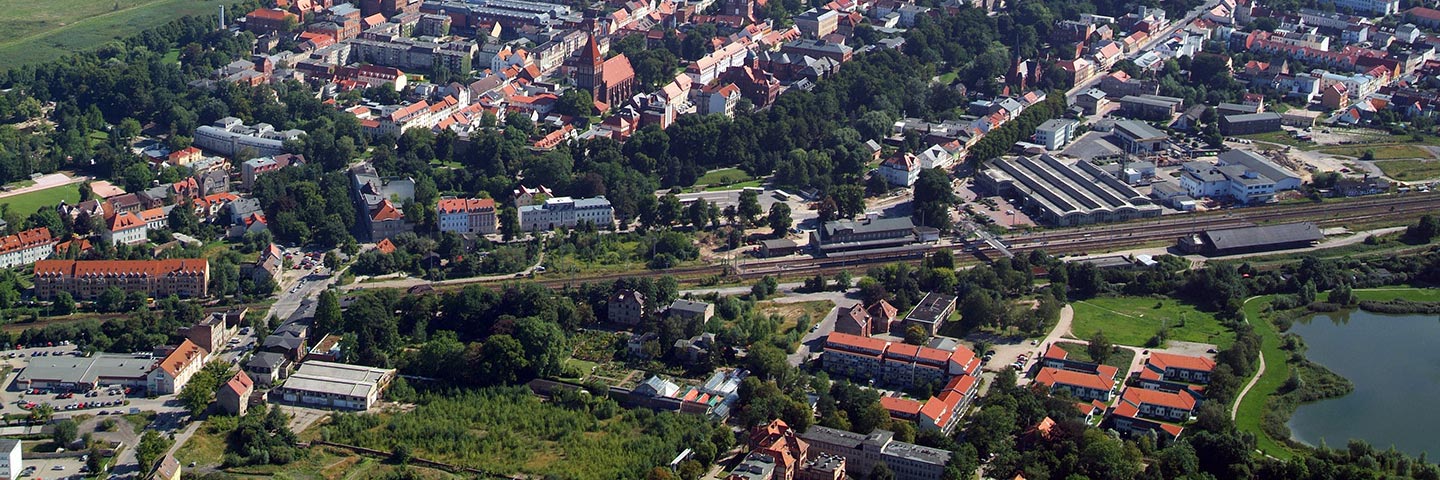News/All pieces
Many peatlands, but there's room for more
Action Programme for Natural Climate Protection
28/10/2022 Peatland protection as a nature-based solution for effective climate protection is extensively considered in the Action Programme Natural Climate Protection (ANK), states the Greifswald Mire Centre in contributing to the German Environmental Ministry's online dialogue on this programme. But there is still some room for improvement. Here is a summary of the most important points:
- The target of 5 million t CO2 eq. annual reduction from peatlands by 2030, which is also set in the Peatland Protection Strategy, is still too low. This is less than 10% of the current annual peatland emissions of 53 million t CO2.
- The framing should change. Germany's peatlands are currently predominantly (85%) used for agriculture or forestry. The term "renaturation" suggests a natural development unaffected by humans after rewetting and the possibility of returning the peatlands to their former condition. In Germany, neither of these is possible. Therefore, the terms "rewetting" and "restoration" are more appropriate. These formulations express that the ANK also includes new, sustainable uses for peatlands.
- The ANK can educate more people about peatlands and build long-term structures at federal, state and municipal level. In addition to voluntary measures, it should also make adjustments to planning and regulatory law, thus enabling common engagement of participating authorities at work level for a comprehensive landscape assessment.
MoorWissen revamped
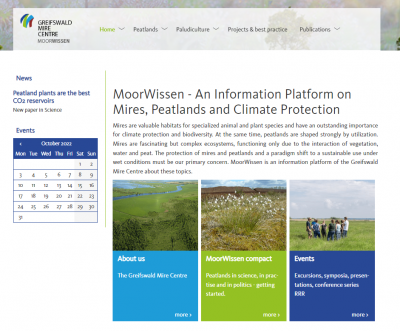
Fresh colours, fresh information
24/10/2022
More MoorWissen and more beautiful - that's what our platform moorwissen.de now offers. We have thoroughly overhauled it, redesigned it and added new information. We want to offer appropriate information on peatlands and their importance for climate protection and biodiversity - ranging from small explanatory films to scientific studies - to people from laypersons to scientists.
The section MoorWissen Summary offers a quick start. Supplementary to the brief explanations, there is an info cluster each on peatland in research, in practice and in politics. Here and on other pages, tile elements enable users to navigate in addition to the drop down menu.
Detailed information can be found under Projects & best practise examples that the partners in the Greifswald Mire Center have carried out so far. Both can now be found in one overview. There is a total of 40 projects, most of them with a duration of several years - quite remarkable, in our opinion.
New is a section on Moorpädagogik (German only), dealing with the mediation of peatlands and climate protection pedagogically, and the section Moore & Kunst (German only). From experimenting with biomass from peatlands, to exhibitions, workshops, residencies, poetry and finally this year's Peatland Pavilion at the Venice Art Biennale - it's worth scrolling through these creative projects.
An entire section is dedicated to paludiculture, divided and assorted to paludiculture on bogs and fens. It also includes tools such as a climate protection calculator for drained areas.
Also, now on MoorWissen: an event calendar, our newsletter subscription and social media channels. But, there is one fly in the ointment, to be honest. There is still a lot do for presenting the entire page in English, but we are working on it. We are happy to receive feedback and other suggestions about our revamped MoorWissen-Webpage via email to communication@greifswaldmoor.de !
Duly awarded!
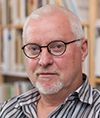
Federal Order of Merit for Hans Joosten
27/9/2022 Professor Hans Joosten from Greifswald will receive the Order of Merit of the Federal Republic of Germany on 30th September for his research on and his personal commitment to peatlands and climate protection. Matching the slogan "Building Bridges", Federal President Frank-Walter Steinmeier will honour the peatland scientist and further 20 persons on the occasion of the Day of German Unity at Bellevue Palace which is celebrated on the 3rd October. According to the Office of the Federal President, the eleven women and ten men are making an outstanding contribution to finding solutions to the global challenges of our time, such as the war against Ukraine, the Corona pandemic, poverty reduction, migration and climate change, as well as to strengthening cohesion in our country.
Regarding the award for the native Dutchman, it says: "Thanks to Hans Joosten, it is known today: drained peatlands are climate killers, "rewetted" ones are climate savers. The biologist is a pioneer in the search for ways to protect the climate. At the University of Greifswald, he co-founded the Greifswald Mire Centre, one of the world's most sought-after research centres for climate protection. However, Hans Joosten has not left it at scientific research on the relevance of peatlands for the climate. He has shown practical ways to use the areas for agriculture again and in the process coined a whole new discipline, "paludiculture". Beyond his scientific work, he has always been involved in political debates, because climate protection needs everyone's action."
Frank-Walter Steinmeier and Joosten had already met last year at an award ceremony. The Federal President had presented the scientist with the German Environmental Award 2021 of the Deutsche Bundesstiftung Umwelt (DBU).
"The Mouse" exploring peatland
About cow burps, smacking soil and sour cucumbers
17/8/2022 "The Mouse" was here! During this summer, the children's programme took a close look at climate issues – and among other places also in a peatland. The scientists of the Greifswald Mire Centre told “The Mouse” why peatlands are drained, peat is extracted and why farming on these soils is bad for the climate - especially when cows graze on them. Clarissa, Ralph and Johannes explain what pickled cucumbers and peatlands have in common, why a man on snowshoes is remote-controlling a "lawnmower" and why the ground is smacking. You may find the programme "Sendung mit der Maus" of Sunday 21 August in the ARD media library.
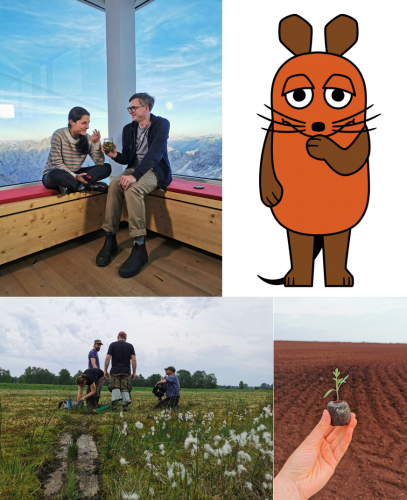
Summer … time for travels
Visiting: MEPs, MdBs, MdLs, Profs, CEOs...
1/9/2022 Summer time is... travel time... that was clearly to be noticed at the Greifswald Mire Centre. Numerous visitors almost turned the door handle one after another in July and August. Interest in peatlands is growing in politics, business and climate research, and we are happy to support it.
The youngest MEP Delara Burkhard (Progressive Alliance of Socialists & Democrats, S&D) and her colleague MEP Jutta Paulus (Die Grünen/EFA) asked at the GMC how peatland protection could be promoted at European level. Ricarda Lang, member of the Bundestag MdB (Federal Chairwoman of Bündnis 90/Die Grünen), stopped in the Hanseatic city during her summer trip to find out more about peatland research and innovative use and to discuss what federal politics could do for more climate protection through peatland protection. Her colleague in the Bundestag, Anna Kasautzki (SPD), was equally interested. As a MdB for the constituencies of Vorpommern-Rügen and Vorpommern-Greifswald, she is already familiar with the GMC and had herself updated on site. After a peatland excursion near Greifswald, the member of the state parliament (Mitglied des Landtages, MdL) Hannes Damm (Bündnis 90/Die Grünen MV) organized a public discussion in the city with the participation of the GMC on rewetted peatlands and their possible use. The Lower Saxony state parliamentary group from Bündnis 90/Die Grünen paid a visit with MdL Miriam Staudte to the test area for peat moss paludiculture near Oldenburg.
Climate researcher Prof. Stefan Rahmstorf of the Potsdam Institute for Climate Impact Research (PIK) has peat (German: Torf) in his name and mires in mind. During his visit to the GMC, he also found out how rewetting and paludiculture can help to combat the climate crisis.
Parallels of full-bodied drinks could be discovered during a visit from the Störtebeker Braumanufaktur. Peat and whisky seem almost old school as a pair now. Paludiculture and beer - this combination offers completely new possibilities, as it turned out in the conversation. Materials from paludiculture are also of interest in the textile industry. So the Scottish company Saltyco® contacted the GMC and came to visit. Reducing and replacing the use of peat in horticulture is a concern at Gramoflor. Here, too, there are promising approaches using paludiculture biomass, which were discussed together with the GMC.
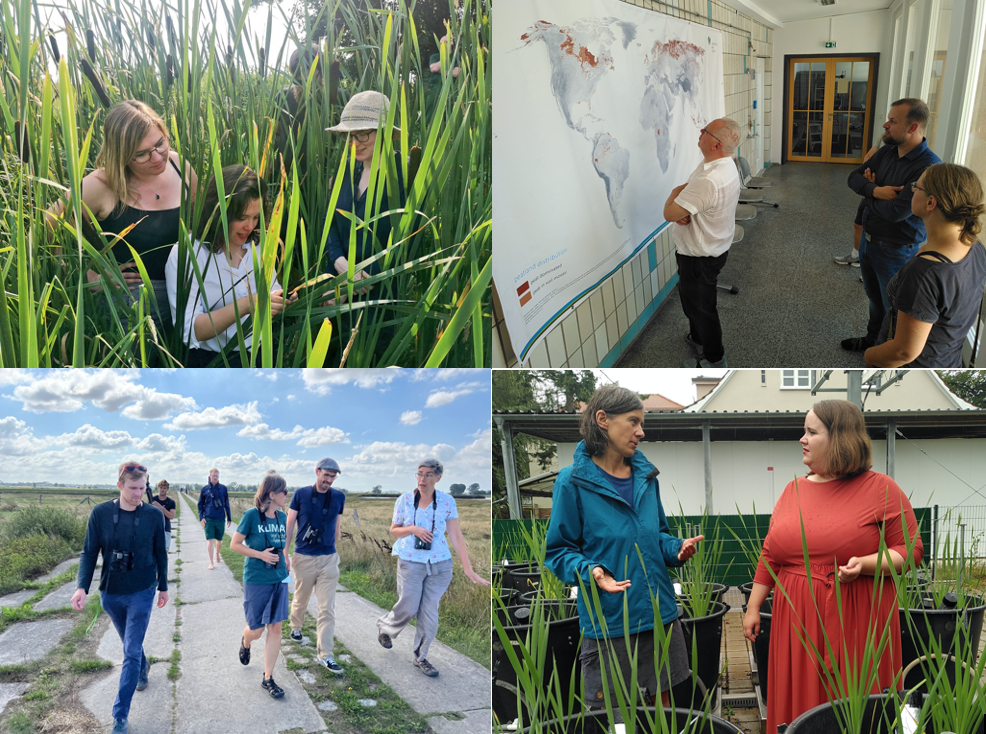
No more delay in EU restoration law
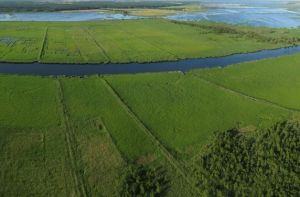
EU Nature Restoration Law must come now
9/6/2022 Nature-based climate protection through the restoration of ecosystems, for example peatlands, offers an outstanding opportunity to combat the unabatedly progressing climate and biodiversity crisis - and an opportunity that must not be squandered. However, the EU Commission has repeatedly postponed the binding EU Nature Restoration Law, which was actually planned for the end of 2021 - first to March 2022. Now it is to be published on 22nd June 2022. In an open letter to the Commission, a network of more than 60 organisations from environmental protection, nature conservation, science and agriculture, coordinated by the International Mire Conservation Group (IMCG), is therefore calling for a "law now". In the EU, however, more than 50% of peatlands are in poor condition, they release large amounts of greenhouse gases as well as nitrates due to drainage, and more and more peatland animals and plants are being lost due to habitat destruction. Rewetting peatlands just offers massive improvement - and in many cases these areas can still be used for agriculture and forestry! With paludiculture, i.e. "wet agriculture and forestry", which has recently also become part of European agricultural policy, value creation, bioeconomy and circular economy can be developed in peatland-rich rural areas. In order to draw attention to the great importance of peatlands and to emphasise the need for ambitious rewetting and restoration of peatlands in the new EU Nature Restoration Law - and not to remove them from it, as is feared - a broad network of more than 60 organisations from environmental protection, nature conservation, science and agriculture has today addressed an urgent appeal to the EU Commission. They demand to defend the success of the EU Green Deal in the EU Nature Restoration Act and to push for an ambitious policy for the rewetting of drained peatlands in Europe. To achieve the climate change targets of the Paris Agreement and the EU Climate Change Act, a transformation pathway for all peatlands in the EU should lead to net CO2 emissions by 2050. The EU should take the lead in the UN Decade for Ecosystem Restoration and achieve ambitious biodiversity targets at the upcoming Biodiversity Convention conference in Kunming, China.
The Venice Agreement
Peatland-art combo with political effect
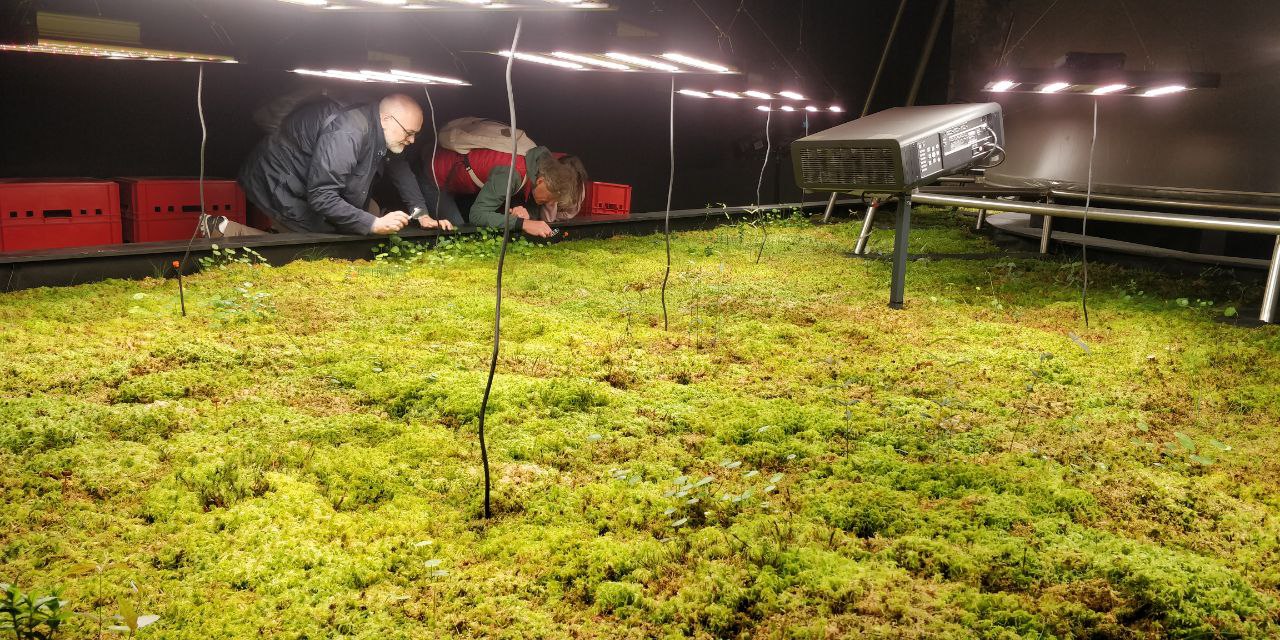
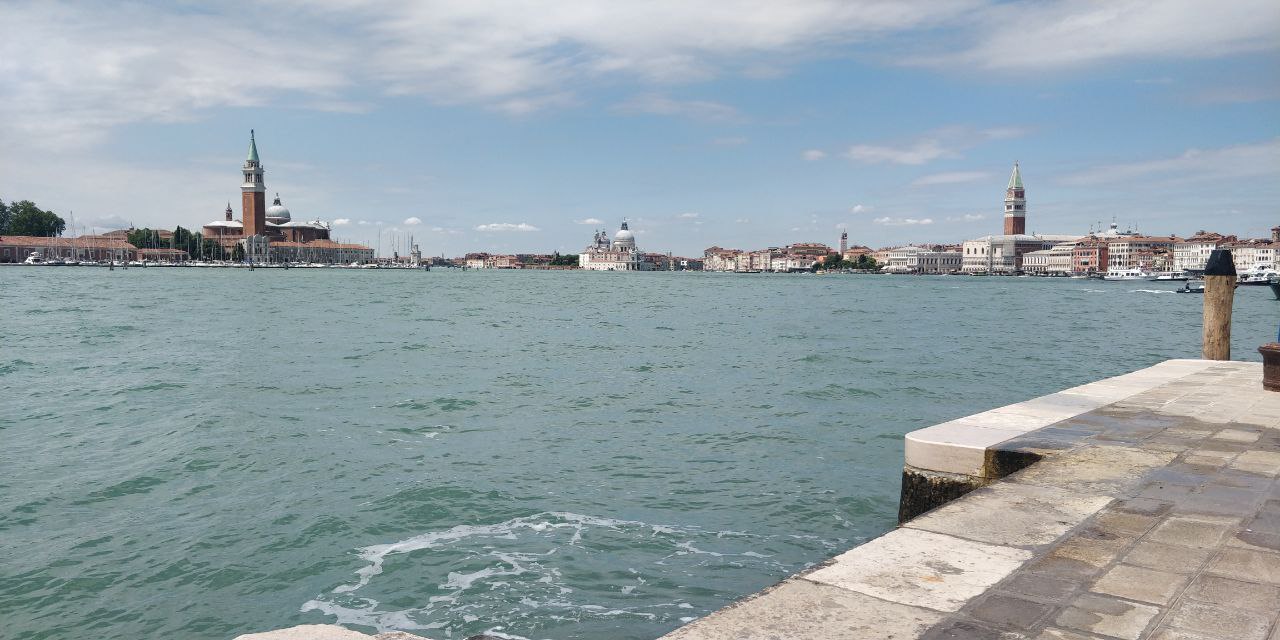
31/5/2022 Peatland and art are combined in an installation at this year's Venice Biennale. Artists and peatland scientists, including some of the Greifswald Mire Centre, have joined forces in a worldwide network. With an art installation and happening they want to achieve more for peatlands also politically. Representatives from art, science, nature conservation, climate policy and indigenous peoples announced the Venice Agreement at the 59th Art Biennale in the lagoon city on World Peatland Day, 2nd June 2022. Following the term “Paris Agreement on climate protection”, the Venice Agreement shall point out, that the preservation and restoration of peatlands is crucial for climate and people on our planet. It was signed, among others, by the Greifswald peatland scientist Prof. Hans Joosten, winner of the German Environmental Award. The agreement is part of the art initiative Turba Tol Hol-Hol Tol an its peat moss installation in the Chilean Pavilion at this year's Biennale. There, the international artist collective Ensayos has set up a peat moss lawn with a video installation for this purpose in one of the historic Venetian warehouse buildings. A fair share of support was given by the Greifswald Mire Centre and the company Moorkultur Ramsloh, which harvested the peat mosses on their research sites in Lower Saxony, Germany, and organised delivery to Venice. The pavillon’s visitors can now discover the peat mosses and the moist oscillating surface they form with all senses. The video sequences convey the fascination of the peatlands in sound and vision. Turba Tol Hol-Hol Tol is primarily dedicated to the peatlands of Patagonia and the indigenous population there. At the same time, it shows that the preservation of nature, including the peatlands, is in the interest of all present and future societies and that the destruction of nature to date can only be reversed globally through the joint efforts of many local initiatives
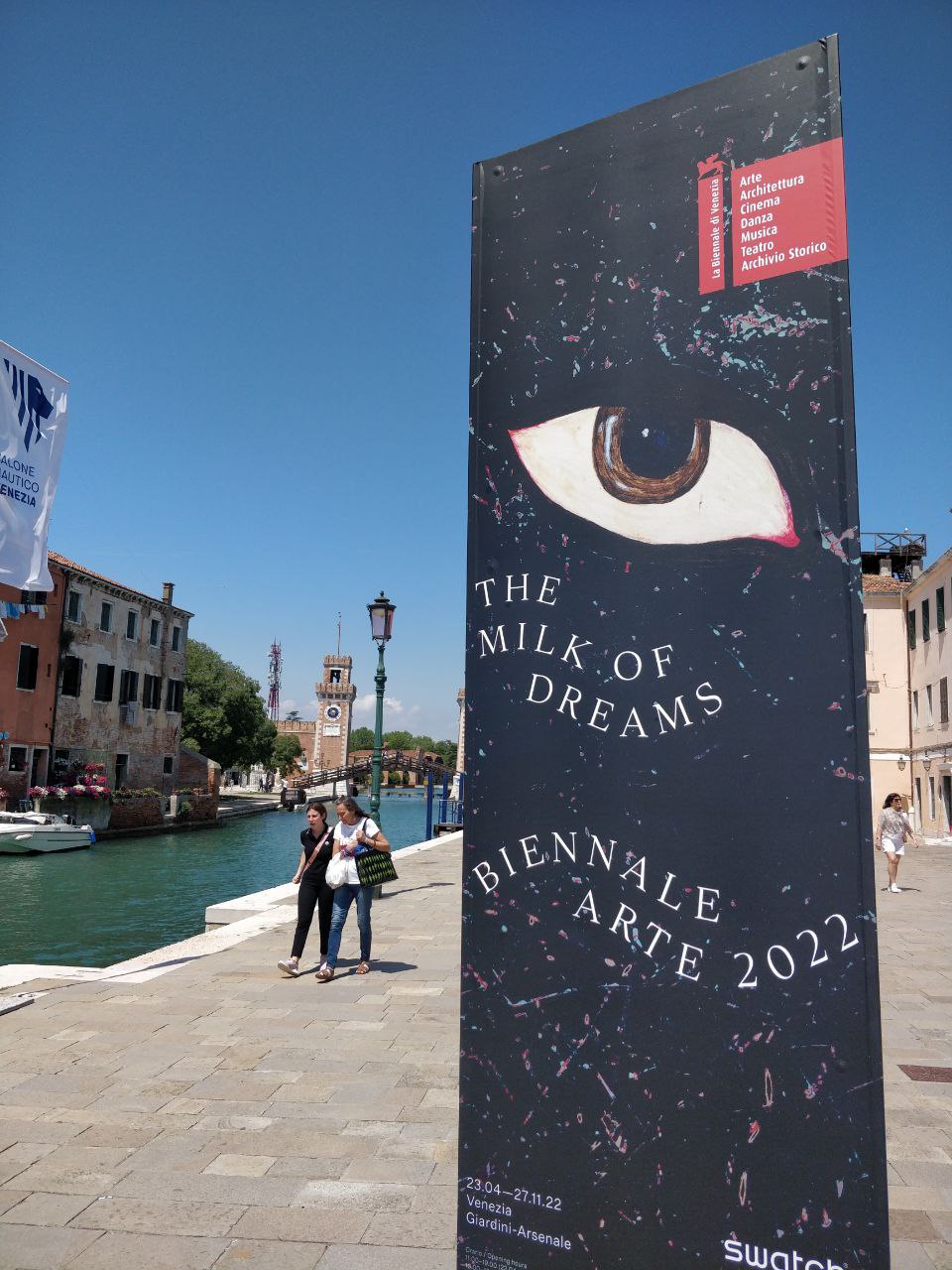
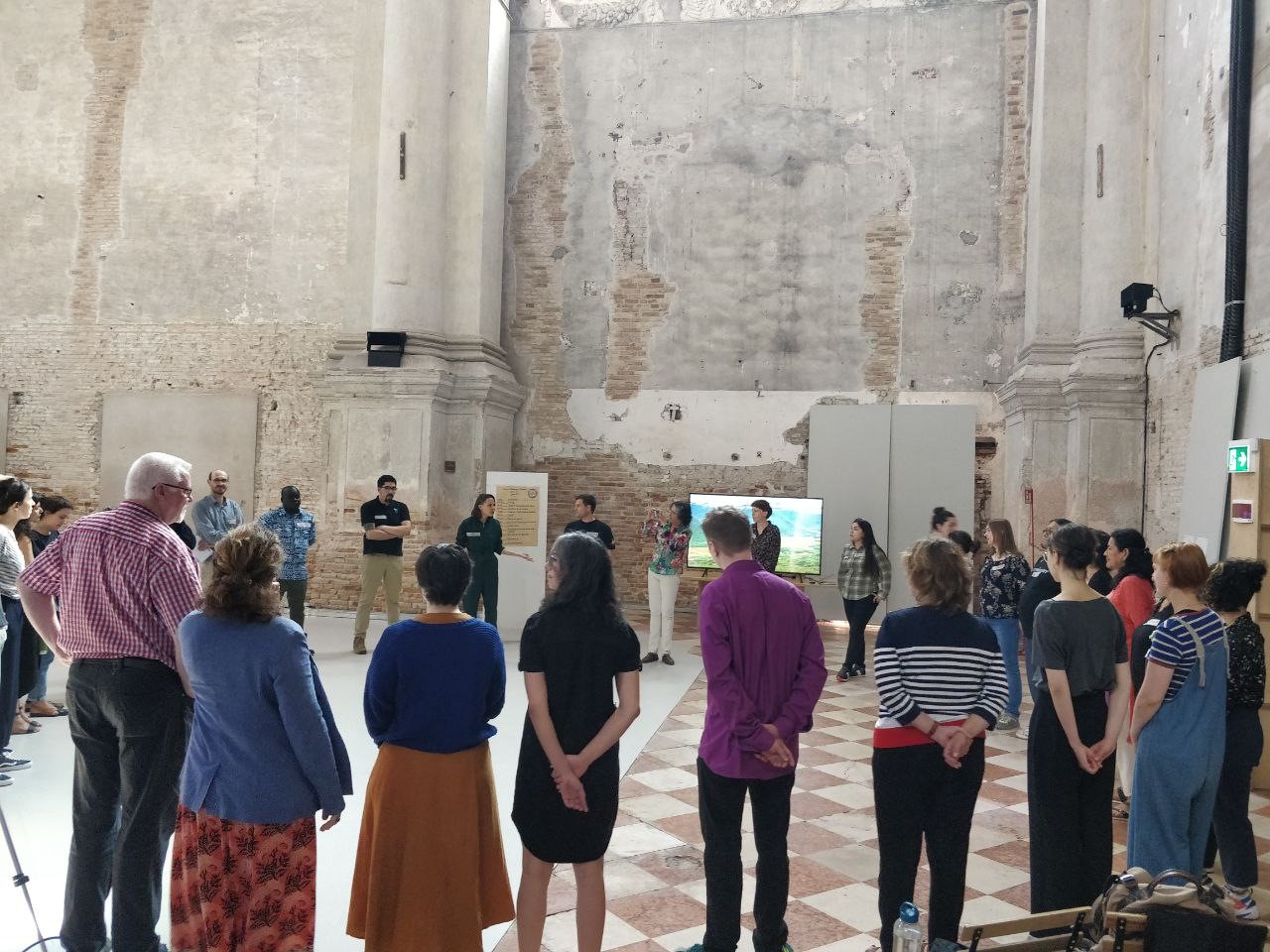
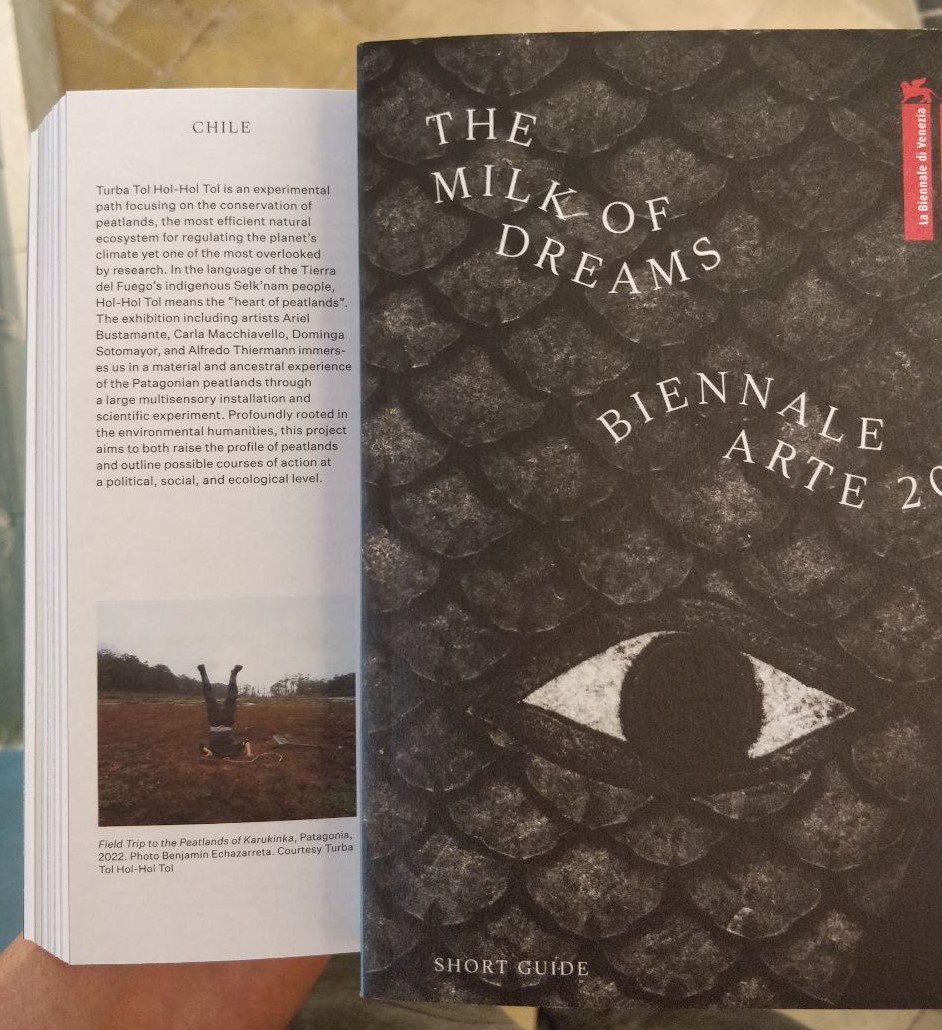
Peatland plants are the best CO2 reservoirs
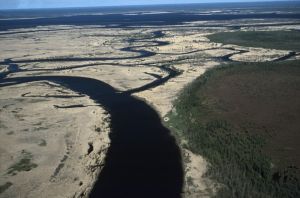
New paper in Science
6/5/2022 Wetlands such as peatlands, salt marshes, mangrove forests and seagrass beds store about five times more carbon per square metre than forests and 500 times more than oceans, an international team including Greifswald peatland scientist Prof. Dr. Hans Joosten has now shown in a recent article Recovering wetland biogeomorphic feedbacks to restore the world's biotic carbon hotspots in the renowned academic journal Science. The reason: In wet ecosystems, plant growth and carbon deposition in the soil stimulate each other. The paper, co-authored by scientists of the Netherlands Institute of Oceanography (NIOZ), Utrecht University, Radboud University Nijmegen, the University of Groningen and the University of Greifswald, also contains good news: protection and restoration of such wetlands can help humans to reduce the CO2 concentration in the atmosphere in view of the climate crisis. And - we are getting better at managing and restoring these ecosystems.
Jung&Naiv on peatlands&climate
Live on YouTube on May 6th
5/5/2022 Naive questions about peatlands and climate Tilo Jung of Jung & Naiv will ask Dr. Franziska Tanneberger of the Greifswald Mire Centre tomorrow live on YouTube. Tune in starting at 5 p.m.. Jung&Naiv is already collecting input and questions on twitter @TiloJung and @JungNaiv.
Photovoltaics on peatland
Yes, and only if... says new info paper
8/4/2022 Photovoltaic systems are already being built on peatlands – but on drained peatlands that are strong sources of CO₂. There are hardly any legal requirements for this so far. Photovoltaic plants on rewetted peatlands could provide a "collateral benefit," said Bernhard Krüsken, secretary general of the German Farmers' Association, at the conference "Peatland Protection is Climate Protection" in Berlin on 28th March 2022. The Greifswald Mire Centre had already worked on this preliminarily in a new information paper. The combination of photovoltaic systems and peatland rewetting would be able to replace fossil fuels and reduce CO₂ emissions at the same time. However, there is still a great need for testing and development. Therefore, the GMC recommends an area limitation for the time being and has compiled hints for a sustainable implementation.
